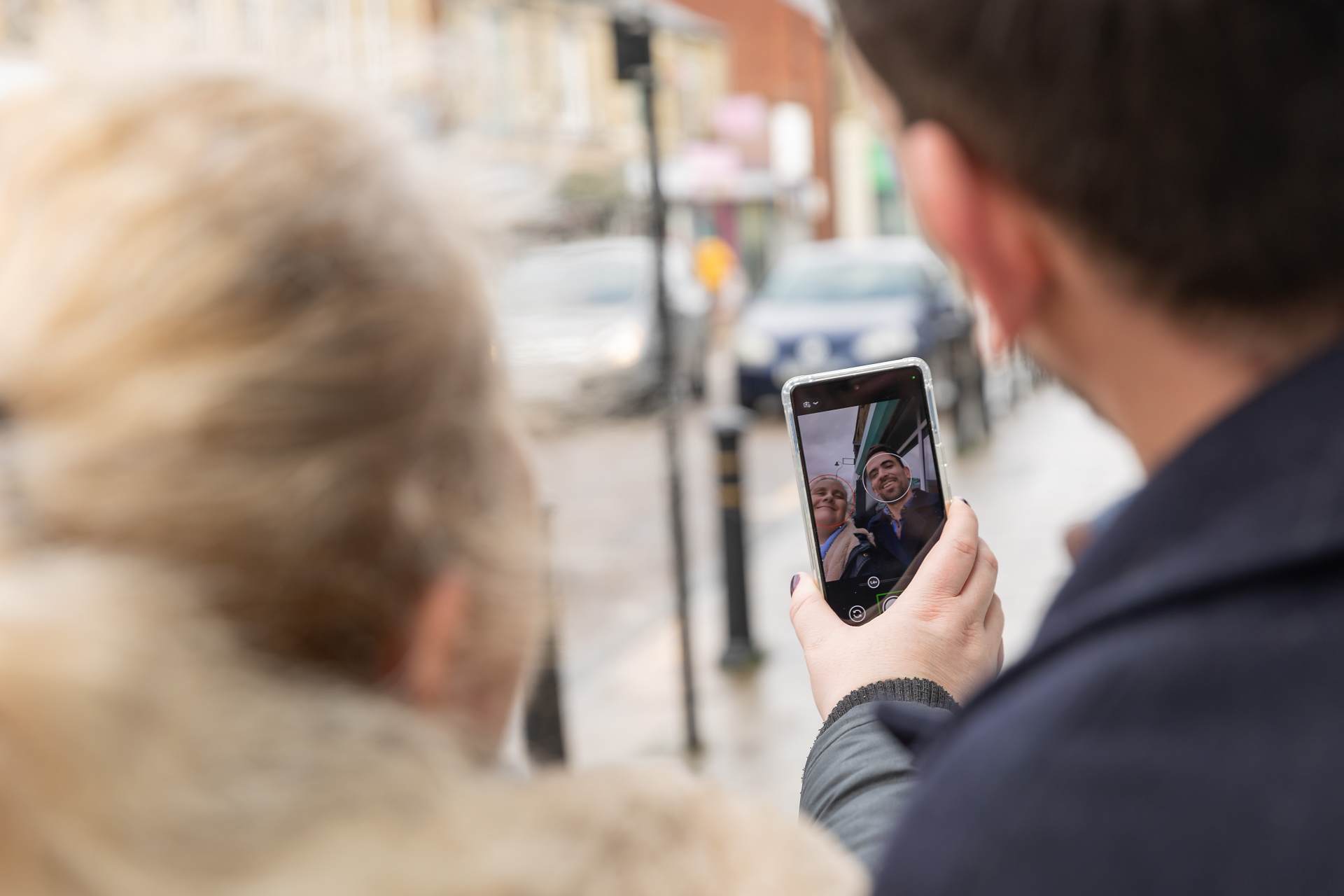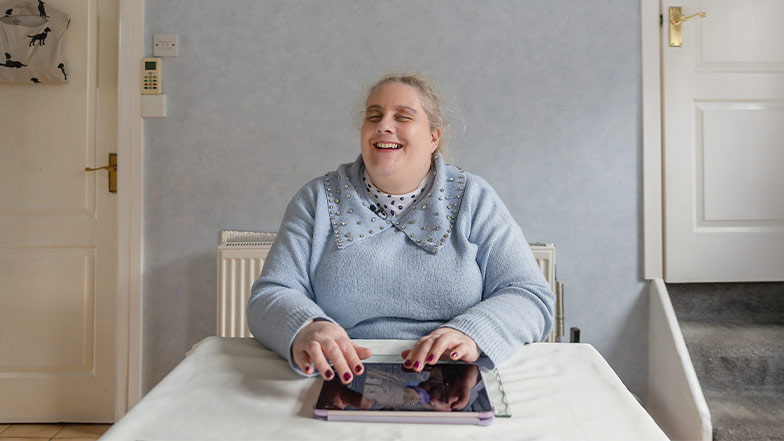Be My Eyes
Be My Eyes is a free app that connects people with vision impairment to their friends and family and a network of sighted volunteers. The app also connects users to AI (artificial intelligence) services to help with tasks like locating a misplaced item or describing a photo. With the tap of a button, Be My Eyes users can access visual assistance in seconds.
The app is available on iPhone, iPad, and Android smartphones and tablets. Users can access the services in over 150 countries and in over 180 languages.
On this page
How does Be My Eyes work?
Be My Eyes offers several services, so you can choose which one to use based on the type of assistance you need. Each service works differently, so here’s a summary to get you started:
- Call a volunteer: Once connected through a live, one-way video call, the volunteer will be able to see your environment through your phone’s rear camera. This allows them to ‘be your eyes’ and support you with everyday tasks. Most calls are answered within 30 seconds.
- Be My AI: Take a photo and the virtual assistant will describe it to you in great detail. You can ask it follow-up questions to help get a more in-depth description of the scene in front of you.
- Be My Eyes Groups: This service is for tasks where you’d feel more comfortable talking to someone you know. For example, you might only trust a friend or family member to help you read prescriptions.
- Contact a company: The app lets you bypass traditional customer service channels and connects you to a company representative. The companies taking part are categorised by their industry. This service is called “Service Directory” on Apple devices and “Browse Specialist Help” on Android devices.
How Be My Eyes can help you
Here are some of the ways you might find the different features of Be My Eyes helpful in daily life.
Things to keep in mind when using the Be My Eyes app
- To use this service, you’ll need an internet connection through WiFi or mobile data.
- To use Be My Eyes, you need to be over 17 years old.
- Never share any personal information – like your full name, address or contact details - with volunteers.
- Although this service can be used to help you read letters and instructions, we strongly advise that you don’t share sensitive information. For example, don’t ask a volunteer to read a bank statement.
- Try to manage your expectations. This service is provided by members of the public and the volunteer you connect with might not have had formal sight loss training.
- The volunteer can’t see all your surroundings, and therefore, they can’t fully assess any risk.
- The volunteers won’t be Guide Dogs experts.
How to download Be My Eyes
The app is free to download and use.
- If you have an Apple device, head to the App Store to download Be My Eyes. If you have an Android device, download Be My Eyes from Google Play. Alternatively, there’s a download page on Be My Eyes’ website.
- When you’re searching for the app, look out for its icon which features concentric white lines fanning outwards to form a circle on an electric blue background.

- Once you’ve downloaded the app, you’ll need to agree to Be My Eyes’ terms of use and privacy policy, then you can set yourself up as a user.
We recommend you practise using all the services. This way, you’ll be familiar with them before you need them.
Apps that are similar to Be My Eyes
Although Be My Eyes will meet the needs of some blind or partially-sighted people, it might not be the right fit for everyone. Here are some other apps which offer similar services to Be My Eyes:
- Seeing AI: Seeing AI uses artificial intelligence to describe everything from printed text to photos, to identify items, nearby people, and things in your cupboard.
- Google Lens: Google Lens enables picture-based searches. The app can identify text in images and translate it, scan a barcode and provide more information, or identify what’s in an image and read this aloud.
- NaviLens: Via printed QR codes, NaviLens reads out signs and labels, and provides audio information to help blind or partially sighted people navigate their environment.
You might also like…
Looking for recommendations on products and apps that can help you with your daily activities?
Edited and reviewed by Vision Rehabilitation Specialist Beata Lisowska on 18/07/2024
Guide Dogs is committed to integrating technology into our service delivery and promoting excellence in accessibility and usability. Our staff undergo comprehensive training in technology and accessibility in collaboration with industry leaders like Apple. We foster knowledge of technology and create content through our Technology Champions, comprising Vision Rehabilitation Specialists and Habilitation Specialists. We review this content periodically to ensure that it is up to date and includes new features and changes with operating systems. We work with our partners to ensure accessibility is at the centre of the design. To find out more, there is more information in our accessibility policy.
Please note: Whilst Guide Dogs may be able to suggest various third-party websites and third-party applications which may be able to assist you, those are not endorsed by Guide Dogs. Guide Dogs have no control over those third parties and cannot be held responsible for the accuracy of information and support they can provide or the suitability and quality of any products or services they provide.


